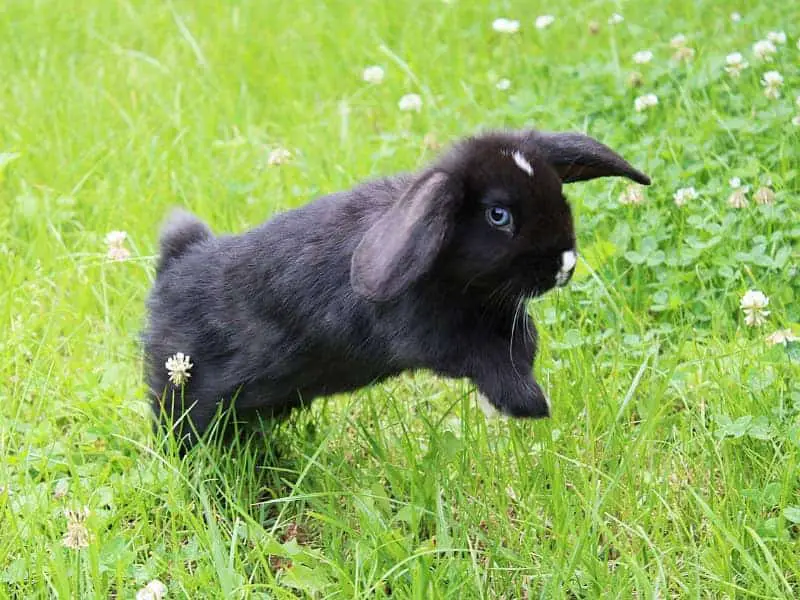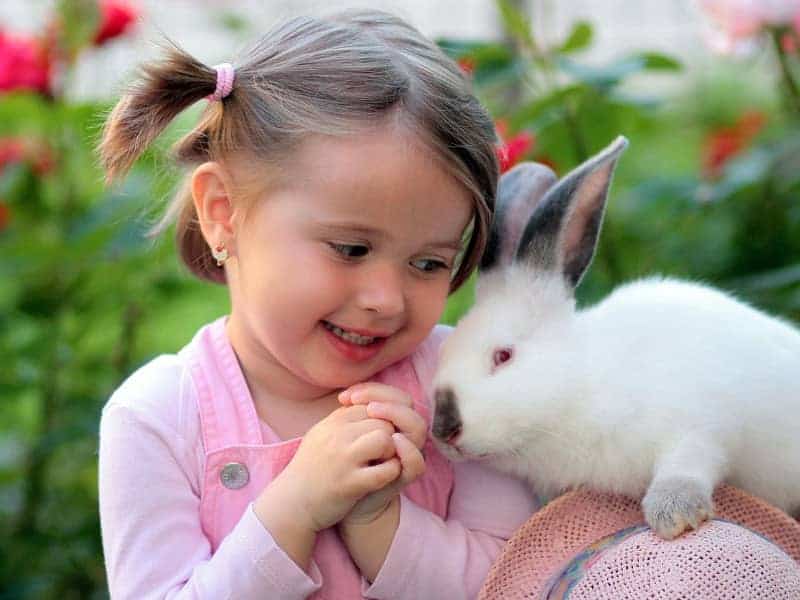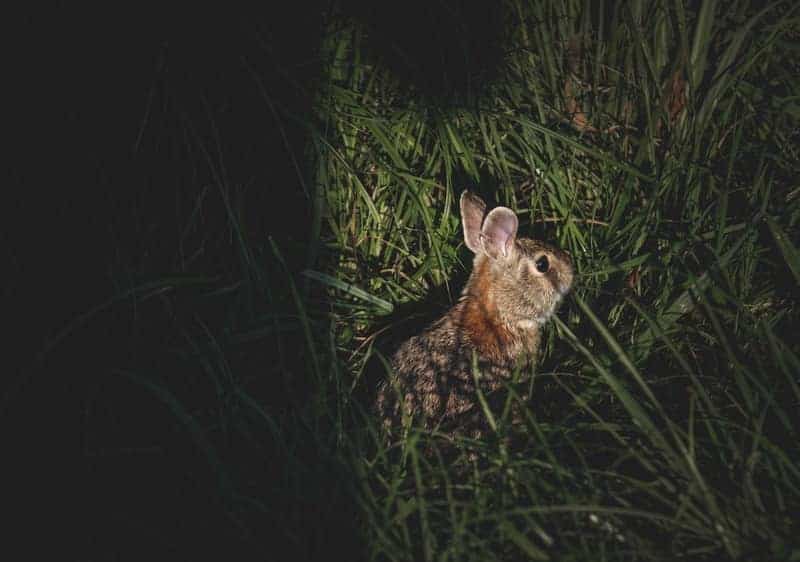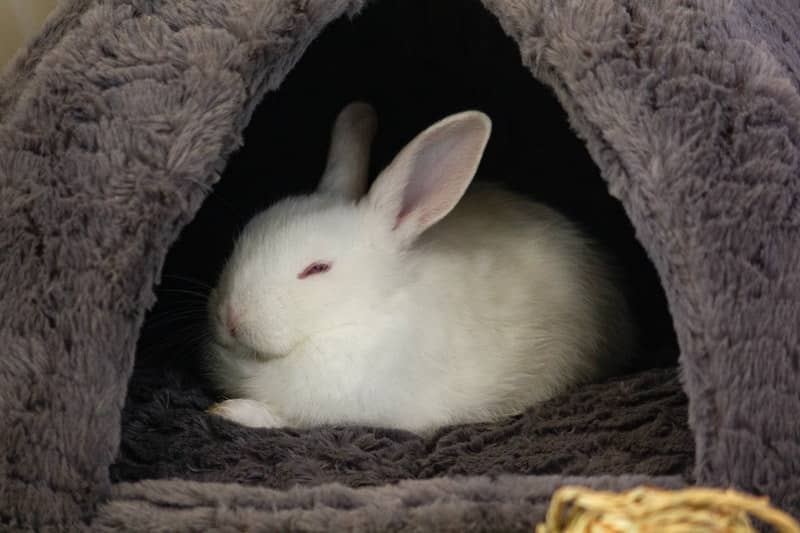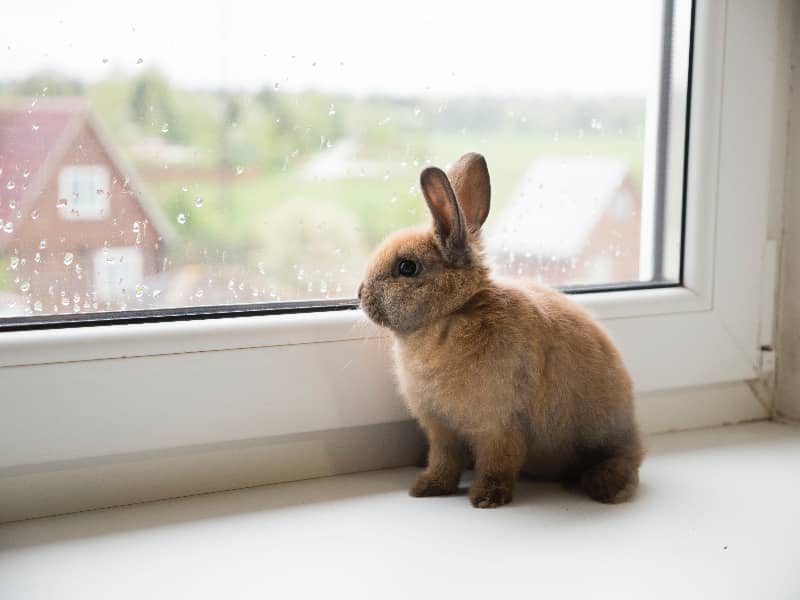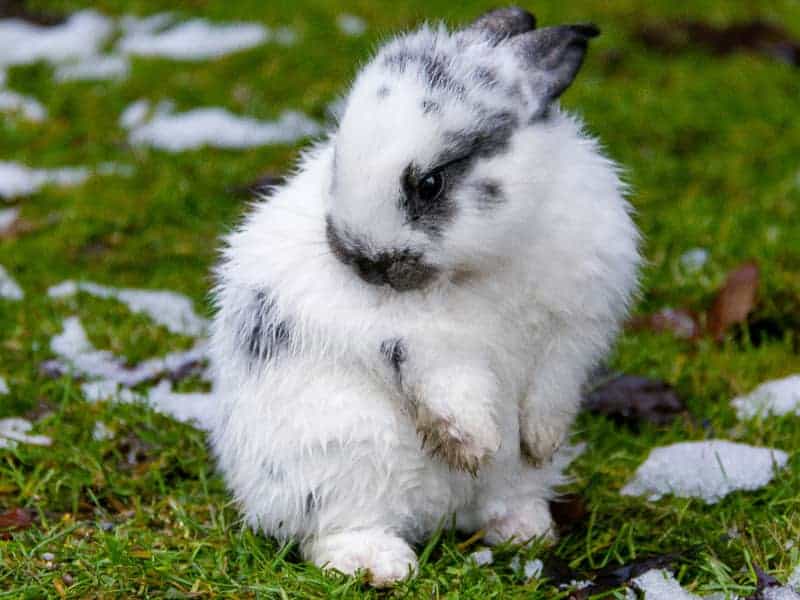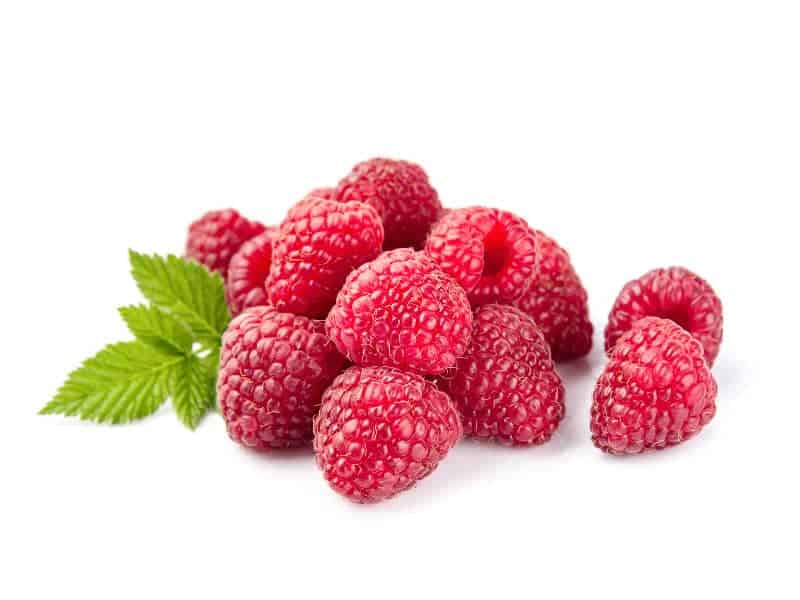
Are rabbits allowed to eat raspberries?
Have you ever asked yourself if rabbits are allowed to eat raspberries? Well, there is a lot of information out there that often contradicts each other and thus sometimes causes more confusion than it actually clarifies. Let's dive into this colorful and sweet world of raspberries and rabbits together.
- Are rabbits allowed to eat raspberries?
- A sweet seduction: raspberries
- The nutritional needs of rabbits
- Raspberries and rabbit: A permitted delicacy?
- Everything in moderation: Why quantity is crucial
- The diversity of raspberry: leaves, branches and fruits
- Tips for feeding raspberries
- The natural charm of raspberry
- Raspberries and their nutrients
- Organic or conventionally grown raspberries?
- The importance of water supply
- The world of raspberry variety
- Winter feeding: raspberry leaves and twigs
- Raspberries and baby rabbits
- Raspberries and their effect on the behavior of rabbits.
- Conclusion: Are rabbits allowed to eat raspberries?
A sweet seduction: raspberries
First of all, what is special about raspberries? Raspberries are delicious fruits rich in vitamins, minerals and fiber. They are known for their sweet and juicy taste and their versatile use in the kitchen. But do they also make a good figure on the menu of your rabbit?
The nutritional needs of rabbits
Before answering this question, we should first look at the nutritional needs of a rabbit. Rabbits are herbivores by nature and their main diet consists of hay, grasses and herbs. They need a diet rich in fiber to keep their digestion healthy. Although they enjoy fruits and vegetables, this should only be fed in moderate amounts.
Raspberries and rabbit: A permitted delicacy?
Now we come to the real question: are rabbits allowed to eat raspberries? The simple answer is yes. Rabbits are allowed to eat raspberries, but in moderation. While raspberries contain many healthy nutrients, they are also high in sugar, and too much sugar is not healthy for rabbits.
Everything in moderation: Why quantity is crucial
As mentioned earlier, the sugar content in raspberries is something we need to keep an eye on. Excessive sugar intake can cause digestive upset in rabbits and increase the risk of obesity and related health problems in the long run. Therefore, it is important to offer raspberries only as an occasional treat and not as a main food. A rule of thumb might be to offer your rabbit one or two raspberries once a week.
The diversity of raspberry: leaves, branches and fruits
Another interesting fact that you may not know is that not only the fruits of the raspberry are suitable for rabbits. Raspberry leaves and twigs can also be a valuable addition to your rabbit's diet. They are rich in fiber and have a lower sugar concentration than the fruits. This makes them a healthier option that rabbits can consume in larger quantities.
Tips for feeding raspberries
When offering raspberries to your rabbit for the first time, start with a small amount and watch him carefully to make sure he doesn't have any negative reactions. Not all rabbits tolerate all types of fruit equally well. If your rabbit develops diarrhea or changes its eating behavior, it is better to stop feeding raspberries and consult a veterinarian.
The natural charm of raspberry
It's easy to see why so many rabbit owners want to offer raspberries to their fluffy friends. These delicious fruits are a real treat and can provide a nice change of pace in your rabbit's diet. With their sweet temptation and natural charm, they can be a nice addition to your rabbit's life as long as they are fed responsibly.
We hope you now have a clearer idea of whether rabbits can eat raspberries and how to safely incorporate them into their diet. Always remember that any treat you offer your rabbit should be a supplement to their main diet, not a replacement for the main diet itself. With this in mind, let your rabbit enjoy the sweet treat of raspberries - in moderation, of course!
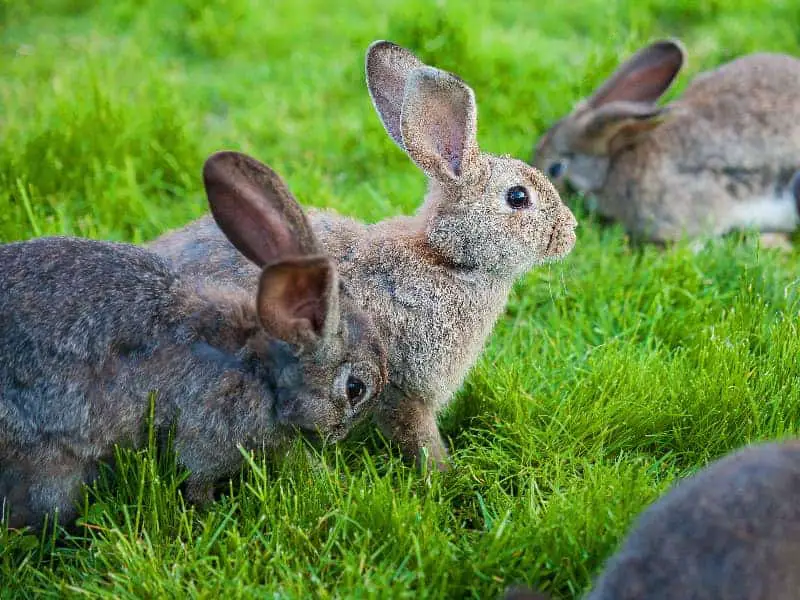
Raspberries and their nutrients
Raspberries contain not only sugar, but also many valuable nutrients. They are rich in vitamin C, which strengthens the immune system, and also contain fiber, which helps digestion. In addition, raspberries are a good source of antioxidants, which can help defend against harmful free radicals.
Why natural food is best
Rabbits have a very sensitive digestive tract. Therefore, it is important to provide them with a natural and balanced diet based on their specific nutritional needs. Fresh raspberries are a great natural option to offer your rabbit, as long as they are given in moderation. It is always better to choose fresh fruit rather than resorting to dried or canned fruits, which often contain added sugars.
Careful with the cores
Some rabbit owners may be concerned about the small seeds contained in raspberries. However, these seeds are usually not a problem for rabbits as they are small enough to be safely digested. However, it is always a good idea to monitor your rabbit after feeding raspberries to make sure there are no digestive issues.
Organic or conventionally grown raspberries?
If you have the option, choose organic raspberries for your rabbit. Conventionally grown raspberries are always at risk of being treated with pesticides or other chemicals that could be harmful to rabbits. If you do not have organic raspberries available, wash the raspberries thoroughly before giving them to your rabbit to remove any residue.
The importance of water supply
Although raspberries have a high water content, they do not replace the need for adequate hydration. Rabbits need access to fresh, clean water at all times. This is especially important when they eat fruits or vegetables, as these foods can stimulate their digestion.
In summary, raspberries can be a delicious and healthy addition to your rabbit's diet, as long as they are fed in moderation and responsibly. You know your rabbit best, so observe his behavior and preferences and then decide what is best for his well-being.
The world of raspberry variety
There are several varieties of raspberries, including red, black, purple and yellow. All of these varieties can be fed to rabbits, provided they are fresh and free of pesticides and other chemicals. Each variety of raspberry has its own specific nutrient profiles, and you may find that your rabbit has a preference for a particular variety.
Other berry alternatives
Although raspberries are safe for rabbits, there are many other berries and fruits you can offer your rabbit. Strawberries, blueberries and blackberries are also safe options, provided they are given in moderation. Variety is not only the key to a healthy diet, but also a great way to keep your rabbit entertained and occupied.
Winter feeding: raspberry leaves and twigs
In the colder months, when fresh raspberries are not available, raspberry leaves and branches could be a good alternative. These parts of the plant are also edible and can be a valuable source of nutrients and fiber. They can be dried and offered as a supplement to hay throughout the year.
Raspberries and baby rabbits
Care should be taken with young rabbits when offering them fruit or vegetables for the first time. Their digestive system is still developing and may be more sensitive to new foods. It is recommended that you wait to feed raspberries until the rabbit is at least 12 weeks old. After that, you can carefully introduce small amounts and observe his behavior and digestion.
Raspberries and their effect on the behavior of rabbits.
Finally, offering raspberries or other treats can also be a great way to gain your rabbit's trust and strengthen your bond. Many rabbits quickly learn that the sight of a raspberry means a reward and may even learn to perform simple tricks or commands to get one.
We have now learned a lot about raspberries and rabbits, and as always, the most important thing is to keep your rabbit's well-being in mind. You know your rabbit best, so trust your judgment and observation skills to provide the best care possible.
Conclusion: Are rabbits allowed to eat raspberries?
The world of rabbit nutrition is far more diverse and colorful than one might first think, and raspberries represent a tasty and nutritious treat among them. Although raspberries are considered a safe and healthy option for your rabbit in moderation, attention should always be paid to the amount and frequency of feeding to avoid health problems due to high sugar content.
Not only the fruits, but also the leaves and branches of the raspberry plant can serve your rabbit by providing a rich source of fiber and nutrients. Moreover, the wide range of raspberry varieties and other berry alternatives allows for an exciting variation in your fluffy friend's diet.
However, care should be taken when feeding raspberries to young rabbits and introduction should be gradual to avoid potential digestive problems. In winter, when fresh raspberries are hard to find, dried raspberry leaves and twigs can provide a convenient and nutritious alternative.
Ultimately, it's your job as a rabbit owner to look out for your rabbit's well-being and individual preferences. By finding a balance between a healthy diet and tasty rewards, you can strengthen your relationship with your pet while promoting its health and well-being. Raspberries can be a sweet and healthy addition that enriches your rabbit's life.
Author

-
Garden animal - A life with nature
Welcome to my animal blog! My name is Dirk and I am happy to take you on my journey through the fascinating world of animals and gardening.
Born 54 years ago, I have had an insatiable curiosity for the animal world around me since childhood. Although I have moved professionally in other industries, my true passion has always been animals and nature. It is remarkable how a small garden has become such an important part of my life.
Many of my fondest memories are associated with the animals that share our home. Whether it's the curious squirrels that scurry across the trees in the morning, the colorful variety of birds that visit our feeders, or the busy bees and butterflies that pollinate our flowers, every moment with them is invaluable to me.
This blog is my contribution to share my experiences, discoveries and insights with like-minded people. Here I will share stories of unforgettable encounters with animals, give tips on gardening and creating wildlife-friendly habitats, and take you on my journeys through nature.
Thank you so much for being here!
Cordial,
Dirk aka garden animal
Last posts
- 27. February 2024PetsVeganes Hundefutter – Grün und Gesund?
- 18. January 2024ChickensOregano für Hühner
- November 27, 2023HamsterDiurnal hamsters
- November 24, 2023HamsterHamster hammock

